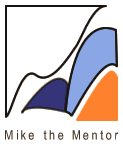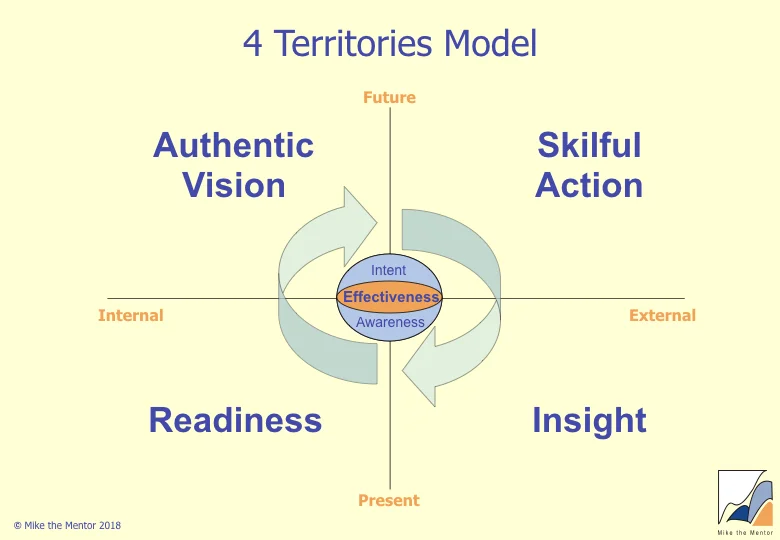Freeing the Self
HOW TO TAKE CONTROL
Why this is important
We like to think that we are in control of ourselves. But if we pause, we notice that our thoughts have a life of their own, that our feelings control our actions, that we often react in dysfunctional and insensitive ways, that we are governed by superstitions, and that we operate most of the time on auto-pilot.
If we are to fulfill our destiny - whatever that may be - then we need to be in charge of our perceptions, thoughts, feelings, imaginings and desires and not be controlled by them.
The Idea in Brief
A lot of the time we think and act automatically. But we have the capacity to be more deliberate in our actions so that, rather than our behaviours being determined by our thoughts etc, we can use them as sources of information and energy for what we do next. To become more able to do this, we need to be able to disidentify from the contents of our consciousness. This involves identifying that centre within ourselves from where we are aware of our moment to moment experience and strengthening our ability to operate from there.
The Idea in Detail
In the late 1980s (wow! was it really that long ago?) I was becoming increasingly curious about both my personal development and my spiritual growth. To find a way forward, I read widely, went to a variety of workshops and classes, and spoke to a lot of people - but without finding what I was looking for. Then one day I read the first chapter of the book Psychosynthesis first published in 1965 by Roberto Assagioli and had an epiphany - here was a path that could help me discover my true spiritual nature and increase my ability to live this in the world.
Since then, the philosophy and models of Psychosynthesis have strongly influenced my life and my work as a coach and mentor, none more so than Psychosynthesis's central model - "The Egg of Being" (see diagram). This is a map of our consciousness. At the heart of the diagram is the personal self, our individual "I" that experiences itself as having thoughts, emotions and sensations. Becoming more aware of this centre of our being is a primary goal of Psychosynthesis for this is the place from which we can manage and direct our personality - rather than be directed by it - and take responsibility for our process of becoming.
Consciousness
Becoming more fully integrated human beings (which Warren Bennis asserts is also the route to becoming a great leader) involves enabling the self's attention to more freely range across the whole of who we are (represented as the interior of the egg) and beyond.
The Egg of Being
The middle unconscious represents our present and contains those aspects of ourselves that can easily be brought into our field of awareness. Our field of awareness is constantly changing in shape as our attention shifts.
The lower unconscious stands for our past and includes repressed complexes, long forgotten memories, instincts and physical functions over which we ordinarily have no conscious control.
The higher unconscious represents our evolutionary future and is that part of our psychological space from which we receive inspiration and illumination and is where our intuition and potential lie. (Though of course past, present and future are all experienced in the present!)
We are immersed in the collective unconscious in which all beings play a part.
When we incarnate, our self is clothed in a physical body and a personality, both of which develop as we grow enabling us to be and act in the world. But both can also limit us. Our personality with its particular configurations of thoughts, beliefs and emotions may come to bind us too tightly. As we learn to disidentify from the contents of our consciousness and expand our field of awareness, so we come to know our essential self and to express the fullness of ourselves in the world.
Assagioli expresses it very eloquently; "Psychosynthesis is a method of psychological development and self realisation for those who refuse to remain the slaves of their own inner phantasms or of external influences, who refuse to submit passively to the play of psychological forces which is going on within them, and who are determined to become the masters of their own lives."
Coming to Centre - Developing the Will
Another powerful idea that Roberto Assagioli has left us is that of the Will. Will in Assagioli's work is a much broader and more powerful concept than our everyday concept of will-power. This Will is ultimately concerned with how we express who we are - how we transform spirit into action.In the introduction to his classic book The Act of Will: A Guide to Self-actualisation and Self-realisation Assagioli suggests that, if an ancient Greek or Roman were to suddenly appear among present day humanity, he would initially be dazzled by the material wonders created by advanced technology and would probably regard us as a race of magicians and demigods. But he might also notice that, although we have acquired a impressive degree of power over nature, our knowledge of and control over our inner world is very limited.
Despite our technological magic, we are largely ignorant of our true selves and incapable of dealing with our own emotions, impulses, thoughts and desires. He goes on to say that "this wide gulf between man's external and inner powers is one of the most important and profound causes of the individual and collective evils which afflict our civilisation and gravely menace its future".
The Personality Functions
So the self can be seen as the place from where we can direct our thoughts, emotions, etc through the agency of Will as shown in the Star Diagram.
The Star Diagram: The functions of the personality
This model illustrates two points: that we are more than our thoughts, feelings, bodies and so forth – and that we have a centre from which we can orchestrate and direct these various functions of our personality.
For example my mind often runs off on its own thinking about upcoming meetings, imagining what to say and what might go wrong – and this in turns evokes worry and even indigestion! In situations like this my mind is effectively out of control – it is determining my experience and not serving me well. When I recognise this is happening and, critically, when I recognise that can choose not to listen to my mind, I start to choose my experience and my reality.
Any of these different functions can take control – our fears, our pursuit of physical pleasure, our need to be loved. I know one person who is controlled by their intuition. When faced with a choice, his intuition often ‘tells’ him what to do - and though this is frequently something that he doesn’t want to do and thinks is not the right thing to do, he still does it - because he ‘knows’ that to not do it would be disastrous!
The challenge is to be master or mistress of our personality, not a slave to it. We need to develop the skill to choose and act from that central place – to be able to exert our Will – rather than have our choices and actions determined by functions such as our thoughts, feelings and so on. And the first step is to recognise our own centre distinct from our thoughts, feelings, and all the other aspects of our personality. So that when I say, “I choose this” it really is me who is choosing and not some rogue part of my personality!
Finding the Self
If you've read this far, you may have tried to find this self that is at the centre of your consciousness. If you have, you may have concluded that there is a "mini-me" or homunculus somewhere inside you that is the self, and from where you observe your thoughts, feelings etc. But of course still merely removes the question one step back - for where is the self in the mini-me? You may find you are forced to conclude that the self is unfindable - or that maybe it doesn't even exist. In which case the whole idea of taking control becomes meaningless! But that is an article for another day. (Or see The Open Path by Elias Amidon to explore this further.)
What You Can Do
- recognise that our personality functions (thoughts, feelings, etc) often control us. Our thinking for example often runs out of control, thinking thoughts we never asked it to think.
- practice noticing this, for example through meditation or mindfulness, in meetings (how many times did your mind wander to what you had to do later in the day, to the argument you had with your partners, to the email you had forgotten to write, etc?)
- as you notice your various personality functions at play, you create a distance from them. Develop your ability to take this Witness position
- From this witness position, choose your response (change reactivity to response-ability).
Further Reading
- For an excellent introduction to Psychosynthesis read Psychosynthesis: The Elements and Beyond
by Will Parfitt
- Feel The Fear And Do It Anyway
by Susan Jeffers
The Power of Now: A Guide to Spiritual Enlightenment
by Eckhart Tolle
The Open Path
, by Elias Amidon.


